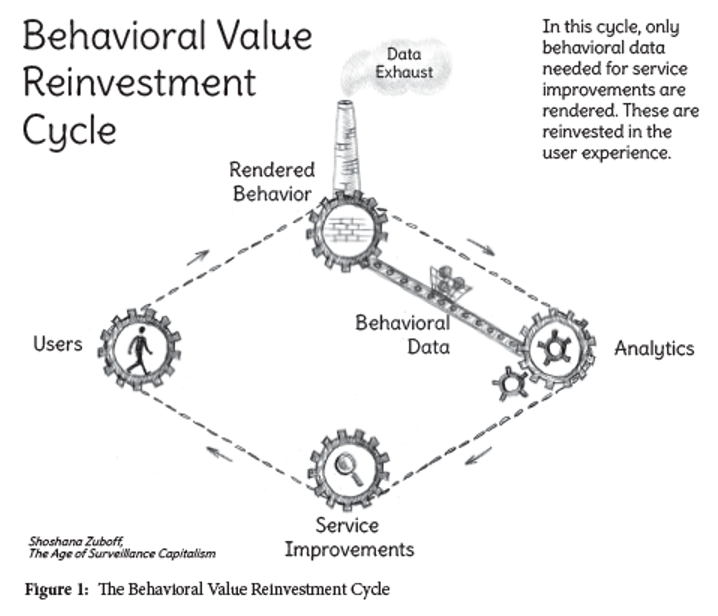A brief thought on the recursive society
The problem of the repeated algorithmic looping of the social (and data coiling)
Is this a recursive society? It’s a question that my reading on algorithms keeps bringing me back to.
A recursive society is built upon feedback loops, multiple feedback loops, each feeding into the next. This, in effect, adds extra steps into social life. The many and vast integrations of data, analytics and algorithms lead to a society defined by feedback loops and processes of recursivity. Circulation upon circulation. Loop upon loop. The repeating of algorithmic processes. The recursive society is a society founded in various types of overlapping analyses. This goes, as Louise Amoore puts it,‘on and on iteratively, recursively making future worlds’. As Helen Kennedy’s book title puts it: ‘Post, Mine, Repeat’ - the key word here is repeat.
A recursive society is not defined by single or isolated loops but by a kind of data coiling. This is not just about data being extracted and then folding back into our lives, it is about the way this folding-back is repeated again and again on lots of different fronts. Once this occurs, the data being produced is not just a product of actions or behaviours, it is a product of how previous feedback loops have shaped those actions and practices, which then produces more data, which then fold-back again into social life.
The recursive society emerges when data gathering is so integrated that there is no point of origin - everything is already implicated by loop upon loop of data processing. Analytics processes are working with data that is at least in part a product of previous analytic steps. What we think of as our data is really an amalgamation of previous data processes. Imagine extrapolating this outwards to include all data-led systems and forms of social ordering.
The above figure, taken from Shoshana Zuboff’s The Age of Surveillance Capitalism, is illustrative of the type of circulatory data processes that are in place. With data gathering then feeding-back as part of, in Zuboff’s argument, an attempt to modify behaviour. The issue then is how this works in the long term.
What happens when these processes repeat and repeat? How does data-informed and algorithmic-led analysis and intervention impact upon the world when we see it not as a series of isolated moments but as a series or coils of feedback loops? Looking into these coils of data raises questions about what happens when data analyses and algorithmic interventions are layered upon many previous moments of analysis and intervention.
The question this poses is whether the theories and methods that are used to make sense of the social world can cope with this level and density of recursivity. Given the scope and depth of recursivity, how can it be grasped? What would be the tools for doing so? What new theories and methods might be needed to bring coiling and recursivity of data processes and algorithmic sorting into view? And then we might also wonder if this recursivity should be untangled or if it should be seen in its place and context? And, of course, any type of social research is itself also entangled in this looping of the social. The way that we know, research and understand the world is implicated by the recursive processes that all social practices are directly or indirectly exposed to.
With a recursive society the problem is not just one of knowing what algorithmic systems are doing or how data are harvested, the problem for social research is in understanding the multiplication of loops and how these loops are implicated by previous loops, on repeat. Perhaps the key question facing critical data studies and social research more broadly is how to deal with recursivity on this scale and how to analyse a social world that is itself so analytic. The analysis of a society that is itself rich in analytics requires an understanding of how those analytics feed off of the data that they themselves have already intervened within. The starting place, as Yuk Hui has already identifed, might even be the concept of recursivity itself.
This problem of looping came to mind as I’m preparing to start work on a Nuffield Foundation funded project exploring algorithmic risk-profiling in housing, led by Alison Wallace.
A two year Research Associate post attached to the project has just been advertised.


